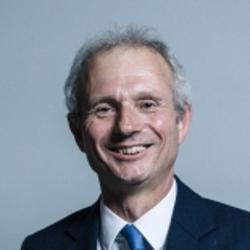Ukraine
(asked on 4th June 2014) - View SourceQuestion to the Foreign, Commonwealth & Development Office:
To ask the Secretary of State for Foreign and Commonwealth Affairs, what recent assessment he has made of political developments in Ukraine; and if he will make a statement.
On 25 May the Secretary of State for Foreign and Commonwealth Affairs, my right hon. Friend the Member for Richmond (Yorks) (Mr Hague) congratulated the Ukrainian people on the conduct of the presidential election. The high turnout showed the Ukrainian people's determination to decide their own future without outside interference, and sent a decisive signal of their support for unity, reform and a new future for their country. The Foreign Secretary also paid tribute to election commission staff who were subjected to appalling levels of intimidation by illegal armed groups who sought to deny the citizens of Donetsk and Luhansk their right to vote but who strove to do their duty, and to the citizens in eastern Ukraine who overcame all obstacles to vote or who tried to do so. Each vote cast there was an individual act of courage.
The Prime Minister, my right hon. Friend the Member for Witney (Mr Cameron) spoke to Mr Petro Poroshenko on 30 May, congratulating him on his election as the President of Ukraine and welcoming his clear messages on democracy and financial and political reform. The Prime Minister also praised the Ukrainian people for their determination to hold elections in such difficult circumstances and choose their own future, offering his continued support in helping Mr Poroshenko to build a secure and prosperous Ukraine through an inclusive national dialogue.
On 4 June G7 Leaders welcomed the successful conduct under difficult circumstances of the 25 May Ukrainian presidential election, and commended Mr Petro Poroshenko for reaching out to all the people of Ukraine. G7 Leaders stand by the Ukrainian government and people in the face of unacceptable interference in Ukraine's sovereign affairs by the Russian Federation, and call upon the illegal armed groups to disarm. G7 Leaders continue to encourage the Ukrainian authorities to maintain a measured approach in pursuing operations to restore law and order and fully support the substantial contribution made by the Organisation for Security Cooperation in Europe (OSCE) to the de-escalation of the crisis through the Special Monitoring Mission and other OSCE instruments. The G7 remains committed to continuing to work with Ukraine to support its economic development, sovereignty and territorial integrity and encourages the fulfilment of Ukraine's commitment to pursue the difficult reforms that will be crucial to support economic stability and unlock private sector-led growth.
G7 Leaders confirmed the decision by G7 countries to impose sanctions on individuals and entities who have actively supported or implemented the violation of Ukraine's sovereignty and territorial integrity and who are threatening the peace, security and stability of Ukraine. G7 countries are implementing a strict policy of non-recognition with respect to Crimea/Sevastopol, in line with UN General Assembly Resolution 68/262 and stand ready to intensify targeted sanctions and to implement significant additional restrictive measures to impose further costs on Russia should events so require.
The Prime Minister met President Putin on 5 June and reiterated that there is an opportunity for a successful, peaceful and stable Ukraine, but the current situation needs to change. He said that Russia must properly recognise and work with this new president and there must be action to stop arms and people crossing the border.

